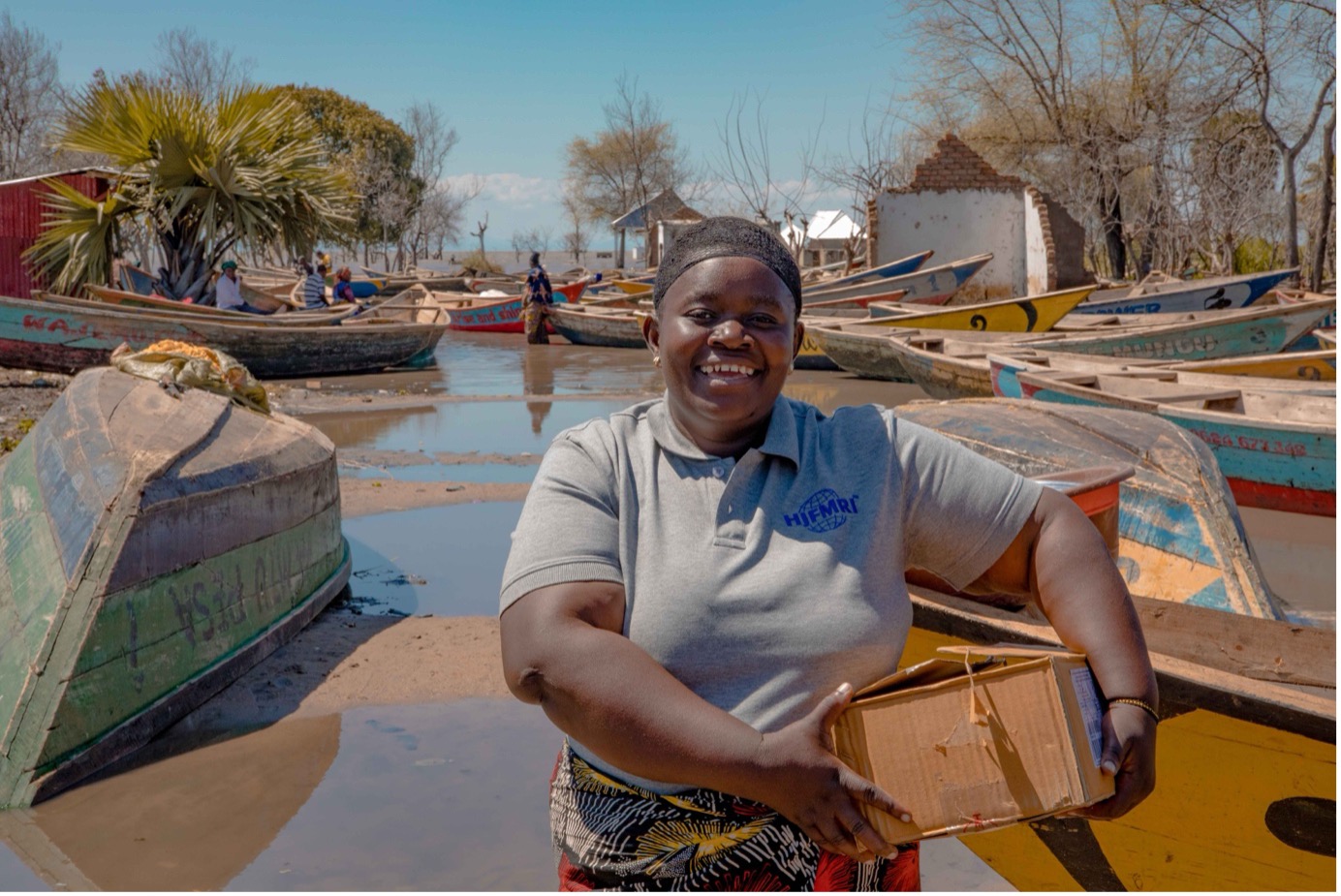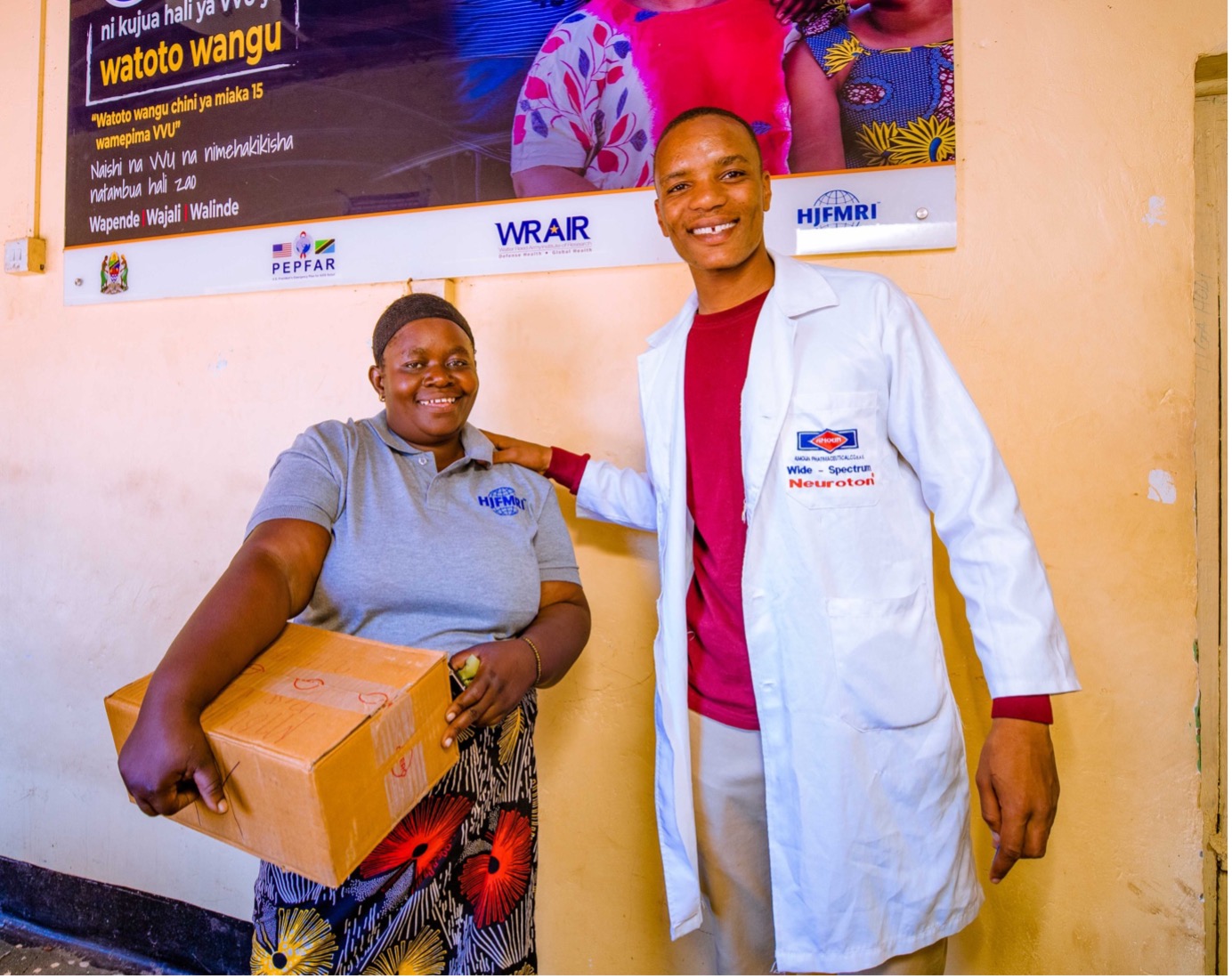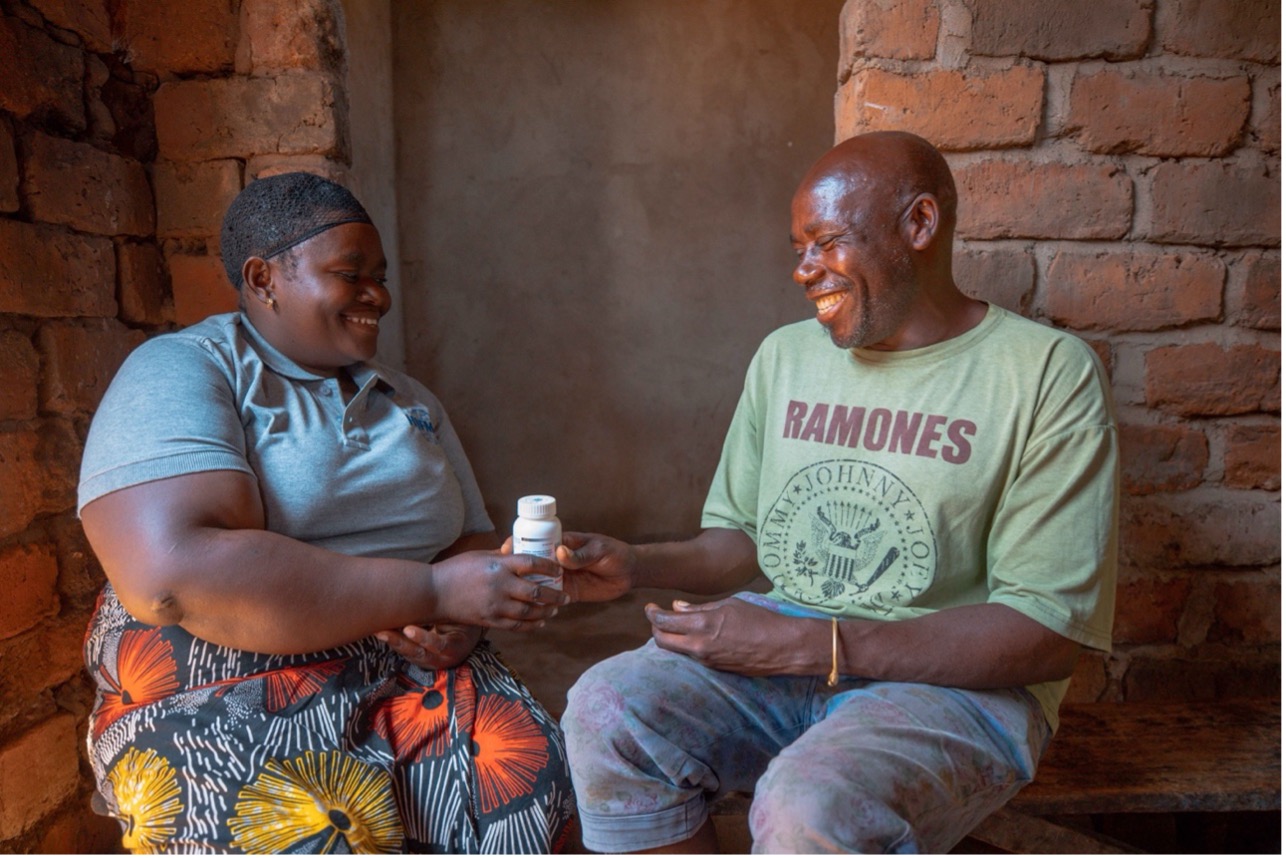By Owen Mwandumbya and Dr. Juma Liwanje

In the remote fishing hamlet of Ilanga Village Camp, nestled along the shores of Lake Rukwa in southwestern Tanzania, people living with HIV (PLHIV) have long faced significant barriers to consistent treatment. The realities of fishing life—frequent travel, unpredictable schedules, and long distances to health facilities—often led to missed appointments and treatment interruptions.
But change came through Lucia Chitto, a resilient woman living with HIV who turned her personal journey into a mission of service. As a community volunteer, Lucia, known affectionately as Lucy, became a trusted lifeline for her fellow villagers, especially those too isolated, mobile, or hesitant to seek care.
Lucy receives training and support from MHRP and the U.S. President’s Emergency Plan for AIDS Relief (PEPFAR), to bring HIV care and treatment services directly to the community. MHRP implements PEPFAR-supported HIV programs in partnership with the Tanzanian Ministry of Health, the President’s Office of Regional Administration and Local Government (PORALG), and HJFMRI. These efforts support underserved regions in the Southern Highlands, including Mbeya, Songwe, Rukwa, and Katavi.
Under a village-based community volunteer model, Lucy became a vital link between Muze Dispensary and 40 PLHIV in Ilanga. With patient consent, and using clinic cards and unique identification numbers, she discreetly collects antiretroviral therapy (ART) refills on their behalf and confidentially distributes the medications from her home. This innovative approach removed the burden of long, costly clinic visits and helped preserve the privacy and dignity of her recipients of care.
The results were remarkable: All 40 recipients of care received their medications on time, and 100% achieved viral load suppression, a key indicator of treatment success and a major milestone toward epidemic control.
“I was diagnosed with HIV two decades ago, and it hasn’t been easy,” Lucy shares. “But I received care at Muze Dispensary and was empowered to start treatment. While working in fishing camps, I met many others who needed treatment but couldn’t travel. I shared this with Dr. Aman Kipandwa, who introduced me to the MHRP team. They trained me to become a volunteer, and now I help others access ART and stay on it.”

Her impact has been deeply felt at the facility level.
“Before Lucy came on board, we had many clients defaulting on ART,” says Dr. Aman Kipandwa, Clinical Officer at Muze Dispensary. “After collaborating with HJFMRI, we empowered her because of her passion and the trust the community has in her. The results have been transformative—many lost-to-follow-up recipients of care are now back in care.”
The Sumbawanga District AIDS, Sexual and Hepatitis Control (DASHCO) Coordinator, Dr. Daudi Machibya, applauds the role of community volunteers like Lucy.
“Sumbawanga District includes highly mobile populations—fishers, farmers, and pastoralists. Reaching them with consistent HIV services has been a challenge,” he says. “But with trained community volunteers, we’ve made great strides in identifying, enrolling, and retaining recipients of care in care.”
Dr. Machibya explains that these volunteers play a vital role in ensuring continuity of treatment for mobile recipients of care. “Our health teams conduct at least two outreach visits per month to collect viral load samples. What’s even more impressive is that recipients of care now notify volunteers when they plan to travel, helping maintain contact and adherence,” he adds. To ensure the sustainability of this initiative, Dr. Machibya confirms that the District Council has started allocating funds to support volunteer-led outreach and ART refills.
“We’re now integrating this model into our district health budget to sustain viral load collection and ART delivery through these trusted community volunteers,” he says.
According to Dr. Juma Liwanje, HJFMRI District Program Lead, the community volunteer model is vital for last-mile service delivery.
“Volunteers like Lucy help us reach those who are otherwise inaccessible. They are trusted, understand the cultural context, and deliver services in a respectful and confidential manner,” he says. “This approach has significantly improved adherence, retention, and viral suppression, especially in fishing communities.”
Lucy’s work goes far beyond delivering medication. She is also a key force in fighting stigma. When she encountered Johnson Gowele and his wife, both living with HIV but hesitant to remain in care, she gently offered encouragement and restored their hope.

“My wife and I were diagnosed two years ago in Sumbawanga and started ART,” Johnson recalls. “But because of my work as a fisherman, I couldn’t regularly collect my medicine. Three months ago, I got seriously ill. Lucy visited, encouraged us, and escorted us back to Muze. Now, she brings us our medications. I feel healthy again.”
Lucy’s mission is deeply personal:
“I know what it’s like to feel alone in this journey,” she says. “That’s why I do this—not just to deliver medicine, but to remind people they’re not alone.”
Thanks to Lucy’s unwavering dedication, HJFMRI has not only improved treatment outcomes in Ilanga but also demonstrated a powerful model for community-driven healthcare. Her work demonstrates that with the right support, even the most remote communities can overcome barriers to HIV care; one person, one family, and one village at a time.
